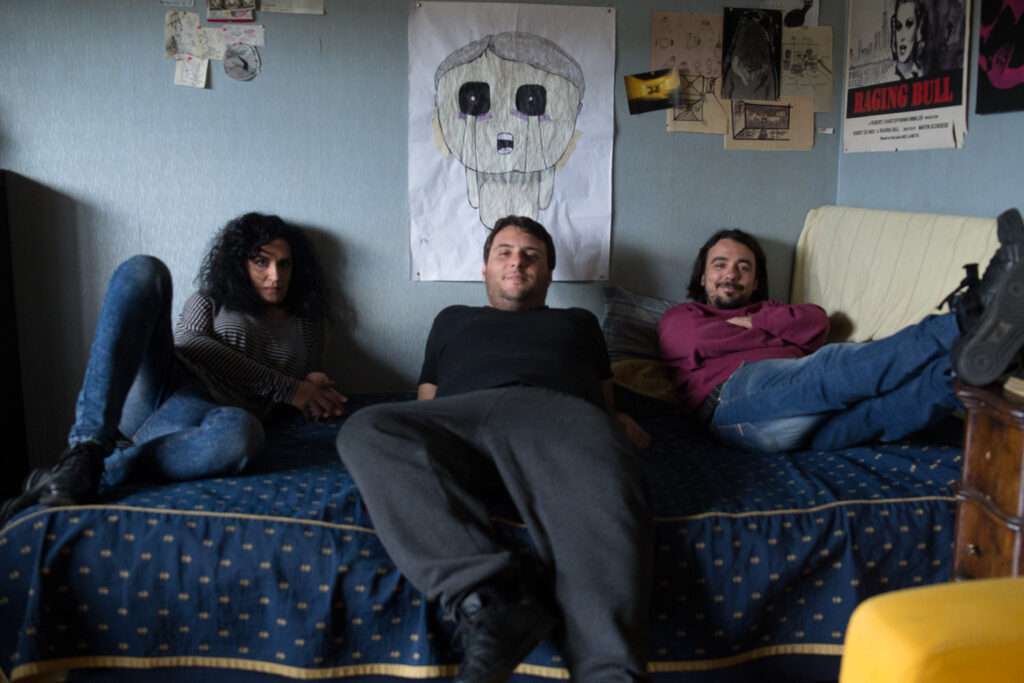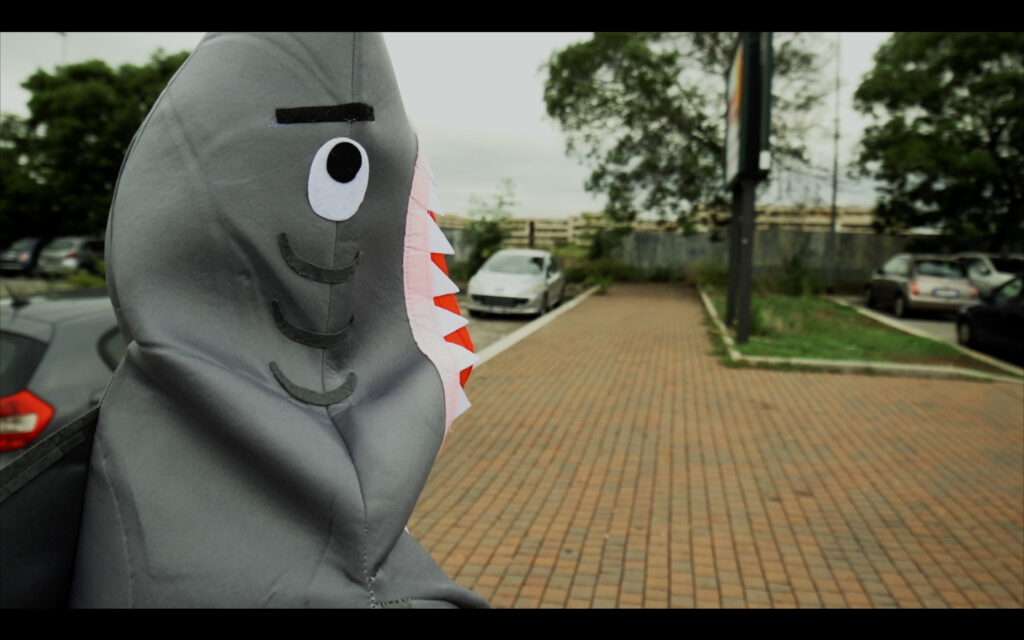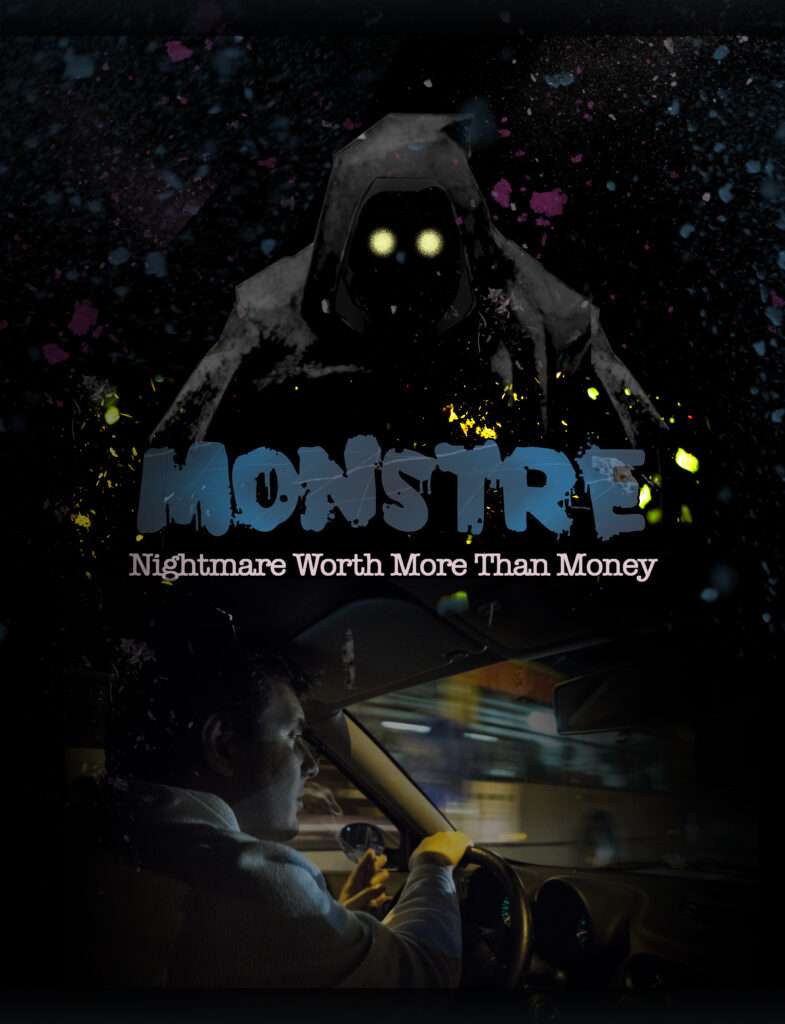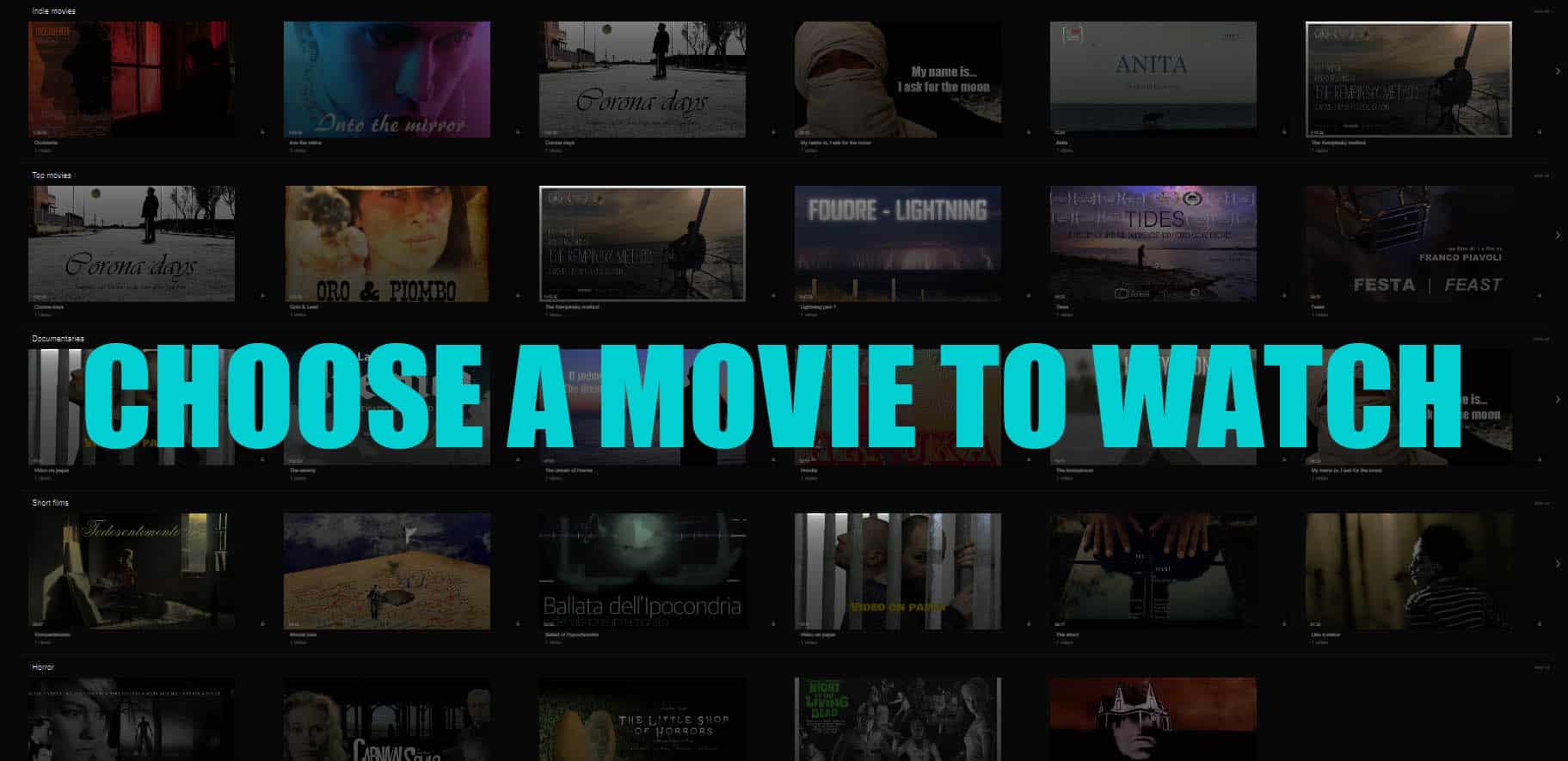
The young Valerio Graglia is the author of Monstre – Nightmares worth more than money, one of the most surprising short films of the second edition of the Indiecinema Film Festival: a biting irony, passion for horrormovies and meta-cinematographic suggestions coexist here. A historical collaborator of the festival, the essayist and film critic Emanuele Di Nicola interviewed him for our blog!

Monstre: the origins of such short movie
Your short film tells the story of some people who want to make an independent short movie. It is therefore a meta-short, in some way. How did you get the idea?
The idea comes from some stories written in the past years, inspired by the everyday life we were living. My desire to move from the documentary sector to the properly fictional one, that of Flavio (the protagonist) to get out of the character actor’s shirt and play a role that was not just the classic “romanaccio” (characteristic inhabitant of the most popular Rome, N.d.R.); however my tendency towards horror, a genre to which I am intimately passionate, emerged with arrogance. We thus sewed on ourselves a story that had those horrific connotations without renouncing the basis of those stories: we thus ended up with a treatment that we defined as “observational”, a definition stolen from comedy, especially stand-up comedy, where one starts from one’s own real condition to then develop the narrative. In this case exquisitely horror.

Between meta-cinema, autarky, horror and stand-up
Without anticipating anything to those who have to see it, can we perhaps say that “Monstre” should also be read as a metaphor for the difficulty of making independent cinema today?
Given the premises, certainly the frustration of independent cinema is not only central but extreme during the story. The nightmares staged are directly proportional to the fears and disappointments experienced in everyday life.
The register is very dreamlike, that is, it comes out of the realism that often characterizes Italian productions. What are the directors and the looks that inspired you?
Despite my love for the horror genre and its deformations, a great inspiration comes from the series signed by the comedian Louis C.K “Louie”, who staged what we used to hear in his shows or monologues. Another important inspiration is the very classic one of Wes Craven, which although it is perhaps not among my favorites has a special place in my pre-adolescent memory. Finally, there is an inordinate desire to create moments of suspension from time, and why not from space, coming partly from Lynch and partly from Satoshi Kon.

Filming and dealing with the difficulty of making indie movies
How was the “Monstre”‘s processing, how long did it take you to finish it?
However short, the work carries with it the concept of realizing it to the maximum of our potential. The shooting days were just 6, spread over the course of a few months, and another important part was taken by the audio and video post-production. Of course the pandemic factor unfortunately played a big part in the lags of the entire processor.
In general, what are the difficulties of making independent cinema in Italy today? And what are the satisfactions?
There are difficulties inherent in the industry, omnipresent in whatever era we are in, at least so I believe. The greatest difficulty we face, however, is that of finding spaces for promotion, spaces that are not only self-referential to independent cinema enthusiasts but which allow for a progressive diffusion of the work. We navigate between events, festivals, Italian and international reviews but often in a detached way compared to an organic promotion. If we talk about satisfactions, going through the whole creative process, with your crew, with people who know and respect each other, is definitely priceless!
What about the distribution and the prospects that have been created?
However ambitious or even fantastic it may sound, the common desire of UnLess is to find a compromise between production and distribution: Monstre is a project conceived and written to be serialized, and we have chosen not to stop in front of other possibilities or detours that lead to they would have distorted his nature. We want to point in the direction of what we believe is the best path for his artistic dignity.
Emanuele Di Nicola




